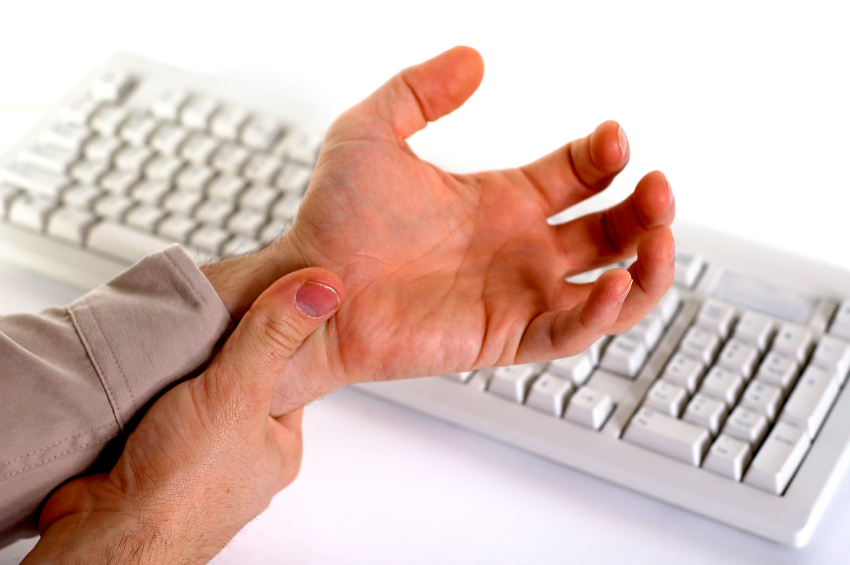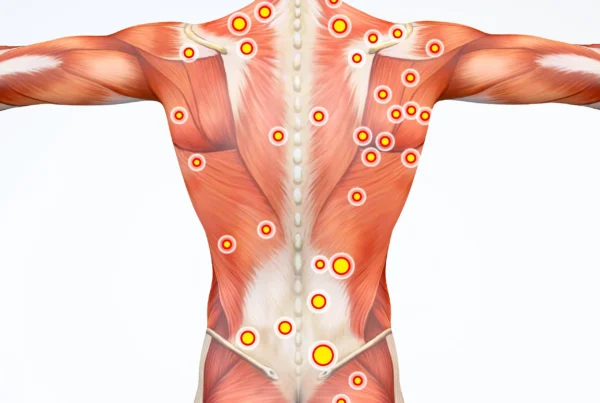Repetitive strain injury (RSI), sometimes referred to as repetitive stress injury. It is a gradual build-up of damage to muscles, tendons, and nerves from repetitive motions.
RSIs are common and may be caused by many different types of activities and movements. A repetitive strain injury is an injury to part of the musculoskeletal or nervous system caused by repetitive use, vibrations, compression, or long periods in a fixed position.
Common overuse activities:
- Using a computer mouse
- Typing
- Swiping items at a supermarket checkout
- Grasping tools
- Working on an assembly line
- Training for sports
Common jobs roles that are impacted:
- Cooks
- Bus drivers
- Musicians
- Dental hygienists
- Construction workers who use power tools
- Cleaners
Common RSI’s:
- Rotator cuff tendonitis
- Bursitis
- Carpal tunnel syndrome
- Tennis elbow
Most commonly affected areas are :
- Wrists and hands
- Forearms and elbows
- Neck and shoulders
Symptoms include:
- Tingling or numbness
- Throbbing
- Stiffness
- Weakness
- Swelling sensitivity to cold or heat
- Pain, ranging from mild to severe
- Tenderness
Symptoms may begin gradually and then become constant and more intense. Even with initial treatment, symptoms may limit your ability to perform your usual activities.
Things that can increase the risk of RSI’S
- Maintaining an abnormal posture for an extended period, such as holding your arms over your head
- Lifting heavy objects
- Maintaining the same posture for long periods of time
- Being in poor physical condition or not exercising enough
- Stressing the same muscles through repetition
- Previous injuries such as a rotator cuff tear or an injury to your wrist, back, or shoulder can also predispose you to RSI.
How is RSI treated:
The initial treatment for RSI symptoms is conservative.
- Remedial Massage treatment
- RICE (rest, ice, compression, elevation)
- Nonsteroidal anti-inflammatory drugs (NSAIDs), both oral and topical
- Steroid injections
- Stress reduction and relaxation training
- Wrapping the area or securing it with a splint to protect and rest the muscles and tendons
- Exercises, which may be prescribed as part of a physical therapy treatment plan
- Your doctor and therapist can also suggest adjustments to your work station, such as readjusting your chair and desk if you work at a computer, or modifications to your movements and equipment to minimize muscle strain and stress.
How can Remedial Massage help ?
Remedial Massage can be extremely effective and fast acting to help relieve the pain and the tissue damage of RSI. This treatment can reduce the inflammation and increase cell metabolism in affected muscles. A Remedial Massage therapist can stretch muscles internally with deep tissue massage in a way that can’t be achieved with regular stretching or yoga. They can also release the tight connective tissue or fascia that can hold lock tight muscles into unhealthy patterns. All of these techniques will push the muscles to release the tension its holding which then allows more free movement and less stress on the joint as well.
Our Remedial Massage Therapists at Centre 4 Health are experts in treating RSI and developing long term strategies to avoid further injury. To find out more about how we can help with RSI or to book an appointment, call us on 9193 2170 or book an appointment online by clicking here.






